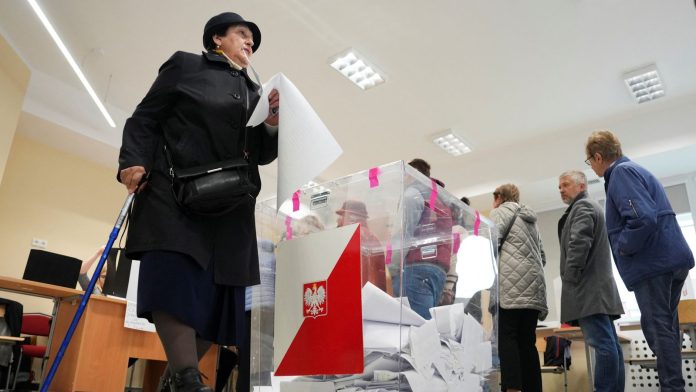Poland is voting on Sunday in an unpredictable national election that could impact support for Ukraine and the current relationship with the EU.
Poland’s recent elections are back to the arena. The ruling Law and Justice party, led by former Polish Prime Minister and European Council President Donald Tusk, is seeking its third consecutive electoral success.
Thus, for instance, PiS brought the judiciary, public media and cultural organizations under state control, as well as taking a tough stance on abortion access and LGBTQ+ rights.
During the election campaign, voters drew attention to Poland’s high inflation rate and border security. The developments will be closely watched in Kyiv after a tense period in which relations between the two close allies soured.
Curiously, however, Poland was until recently Ukraine’s most important partner in the fight against Russian forces in the east of the country, but Warsaw has sharply criticised the Ukrainian government during a dispute over Ukrainian grain imports.
If Sunday’s vote fails to produce an absolute majority (needed at least 231 Sejm seats), the two main blocs will seek a coalition or informal agreement that would allow them to govern.
Whether PiS will seek an agreement with the Confederation, a far-right party opposed to supporting Ukraine and taking away some of PiS’s former voters in rural areas, remains to be seen. It is too early to speculate on the outcome of the election, which has yet to be finalised.
However, any tacit power-sharing pact could end up increasing the likelihood of new elections being called in the near future.
Polling stations in Poland will close at 3 p.m. on Sunday and results are expected to come in overnight.
